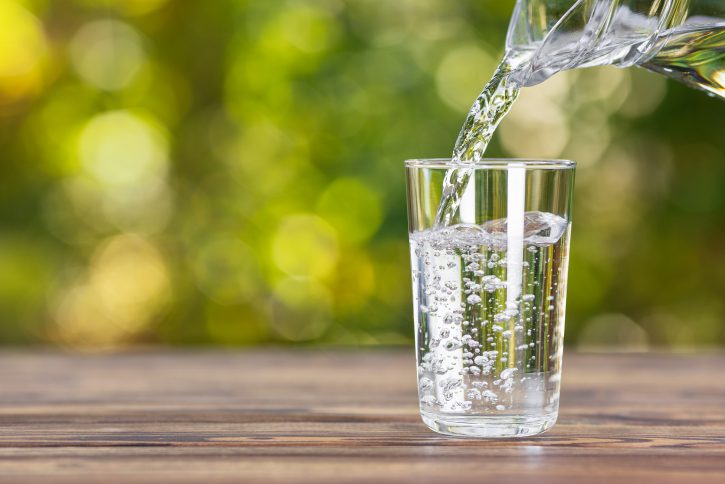
When it comes to thirst, think water first
With so many different types of beverages on the market – sports drinks, seltzers, sodas, energy drinks and more – it can be easy to stray away from the tried and true method of hydration: water. But why is water so important, and how can you make sure you’re getting enough?
Why do we need water?
Water plays a big role in the body. Not only is it found in every cell, tissue and organ, but it helps keep the body functioning by:
- Regulating body temperature
- Removing waste through sweating, urination and bowel movements
- Providing moisture to the skin and other tissues
- Cushioning joints and strengthening muscles
What is dehydration?
When your body doesn’t have enough water, you can experience dehydration. This is more likely to occur during physical activity, hot weather and when experiencing illness – especially with fever, vomiting or diarrhea.
Signs and symptoms of dehydration include:
- Fatigue or decreased energy
- Headache
- Dizziness
- Confusion or unclear thinking
- Dry lips, mouth, skin
- Nausea or vomiting
- Dark-colored or infrequent urination
- Constipation
- Increased body temperature
- Labored breathing
How much water should I be drinking?
Each day, your total fluid intake consists of the beverages you drink and the water consumed in various foods, like fruits and vegetables.
Daily water intake recommendations may differ based on your age, sex and overall health, including your physical activity level and whether or not you’re pregnant or breastfeeding. Talk to your healthcare provider about what daily fluid intake is right for you.
Tips for improving water intake
Improve your hydration and health by making smart choices – like avoiding sugary, carbonated beverages – and incorporating these tips into your day:
- Identify your intake goals and find a water bottle to match. Fill this container each morning and use it throughout the day. When the container is empty, then you know you’ve accomplished your goal!
- Create a “hydration habit.” Drink a glass of water when you wake up, one at each meal, and one at bedtime.
- Be mindful of time. Take a drink every hour, or aim to finish half of your bottle by lunchtime to keep the day from getting away from you.
- Choose water when going to restaurants to save money and calories.
- When eating at home, place a pitcher of water on the table.
What if I don’t like water?
If you’re having a hard time embracing plain water, try these tricks:
- Add berries, lemon, lime or cucumber to your water for flavor.
- If you’re missing the fizz of carbonated drinks, try adding a splash of juice to plain sparkling water
- Stop buying sugary drinks. It’s harder for them to tempt you when they’re not hanging around your home.
- Pay attention to nutrition. If you need something other than plain water, be mindful of calories, added sugars and saturated fats.

Replacing sugary, high calorie beverages with plain water can decrease your risk for weight gain, obesity, cardiovascular disease, diabetes kidney disease, arthritis and more. Like all habits, drinking more water takes time – but the increased energy, improved mental clarity and health benefits are well worth the effort!
Source: Centers for Disease Control and Prevention